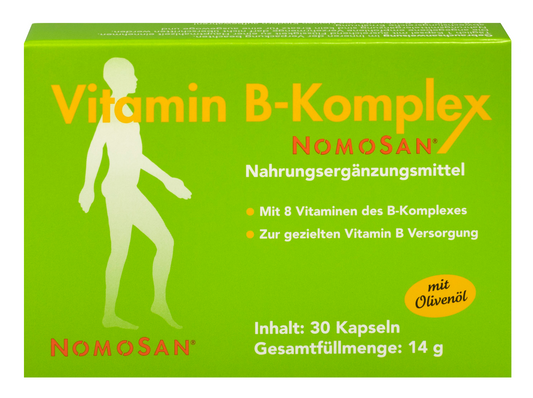Borage oil, extracted from the seeds of the borage plant (Borago officinalis L.), is a significant source of γ-linolenic acid (GLA), which is known for its diverse health benefits.
The Importance of Borage Oil
Borage (Borago officinalis L.) is an ancient medicinal plant from the Mediterranean region that is used both in cooking and in medicine. The seeds of this plant contain a high proportion of GLA, which accounts for between 16% and 28% of the oil content. GLA belongs to the group of omega-6 fatty acids and is essential for various biological processes in the body.
Health-promoting properties of GLA
GLA is commonly used to prevent and treat degenerative diseases such as diabetes, osteoporosis, and certain types of cancer. It also plays a role in the treatment of arthritis, skin conditions such as atopic eczema, premenstrual discomfort, cardiovascular disease, and neurological problems associated with diabetes.
Supercritical Fluid Fractionation of Borage Oil
To make the most of the health-promoting properties of borage oil, modern extraction methods such as supercritical fluid fractionation are used. Compared to conventional methods, which often use organic solvents such as hexane, supercritical carbon dioxide (SC-CO2) extraction offers several advantages. This method is environmentally friendly as it does not require chemical solvents and does not require complex distillation.
techniques of supercritical fluid fractionation
Different techniques can be used to fractionate borage oil. In the present study, two approaches were investigated: precipitation in two cyclone separators and countercurrent extraction column. Both methods have shown to be able to effectively collect free fatty acids, keeping the fatty acid composition unchanged and the oil exhibiting improved antioxidant and cytotoxic properties.
precipitation in two cyclone separators
During precipitation in two cyclone separators, the highest concentration of free fatty acids was achieved in separator 2 at 90 bar and 40 °C. This method enables the targeted extraction of specific fractions that are known for their health-promoting properties.
countercurrent extraction column
The countercurrent extraction column also proved to be an effective method for fractionating borage oil. Here, the acid index of the residue was stable at 2.6 ± 0.5% regardless of the operating conditions. This method offers precise control over the fractionation and enables the recovery of oil fractions with defined properties.
Health-promoting properties of refined borage oil
The extracts obtained from both techniques showed a high tumoricidal activity against HL 60 promyelocytic leukemia cells. Particularly remarkable was the anti-proliferative effect of the extracts from separator 2 at 90 bar and 40 °C, which showed a high efficacy even at low concentrations.
Borage oil in the treatment of atopic eczema
An interesting application of borage oil is the treatment of atopic eczema, a chronic skin condition characterized by dry, itchy skin. Supplementation with omega-6 essential fatty acids (EFAs) could potentially be of interest for the treatment of atopic eczema. EFAs play a crucial role in skin structure and physiology. A deficiency in EFAs can mimic the symptoms of atopic eczema, and patients with this condition often show an imbalance in EFA levels.
Clinical studies on the use of borage oil in atopic eczema
Studies of EFA supplementation in atopic eczema, often using evening primrose oil, have produced conflicting results. Borage oil is of interest because it contains two to three times more GLA than evening primrose oil. A review of 12 clinical trials of oral or topical use of borage oil for the treatment of atopic eczema, as well as one preventive study, found mixed results. The effects of borage oil were significant in five studies, insignificant in five studies, and mixed in two studies.
New findings on pH regulation of the skin by borage oil
Recent research suggests that borage oil may have beneficial effects on skin pH. In a study on guinea pigs with a diet deficient in essential fatty acids, it was found that adding borage oil to the diet was able to restore the acidic pH of the skin. This acidic pH of the skin is maintained by epidermal lactate, free fatty acids (FFAs) and free amino acids (FAAs) generated by various enzymes such as lactate dehydrogenase (LDH), secreted phospholipase A2 (sPLA2) or filaggrin degradation with peptidylarginine deiminase-3 (PADI3).
results of the study
In the group receiving the diet deficient in essential fatty acids (HCO diet), skin pH was less acidic. After adding borage oil to the diet (HCO + BO group), the acidic pH of the skin was restored. In addition, epidermal lactate and total FFA levels were higher than in the HCO diet group. The activities and protein expressions of LDH and sPLA2 (mainly the isoform PLA2G2F) were similar in the HCO + BO and BO groups. Epidermal acidic FAAs as well as protein and mRNA expressions of filaggrin and PADI3 were higher in the HCO + BO group than in the HCO group. Oleate, total FAAs including other FAAs, and mRNA expressions of LDH and sPLA2 were not changed between the HCO and HCO + BO groups. Basic FAAs did not differ between the groups.
The results suggest that addition of borage oil to the diet in cases of essential fatty acid deficiency (EFAD) can restore the acidic pH of the skin and increase epidermal levels of lactate, most FFAs and acidic FAAs by regulating the activities and protein or mRNA expressions of LDH, sPLA2, filaggrin and PADI3. These new findings contribute to a better understanding of the potential applications of borage oil in skin care and suggest that it may be a useful supplement for the treatment of skin conditions such as atopic eczema.
In summary , refined borage oil, especially obtained through supercritical fluid fractionation, offers a variety of health-promoting properties. The most prominent benefits include:
-
Rich source of γ-linolenic acid (GLA) : Borage oil contains high levels of GLA, an omega-6 fatty acid known for its anti-inflammatory and skin-conditioning properties.
-
Improved skin health : The use of borage oil can help relieve the symptoms of skin conditions such as atopic eczema. It supports the regeneration of the skin barrier and promotes moisture retention.
-
Antioxidant and cytotoxic activity : Supercritical fluid fractionation enhances the oil's antioxidant properties, making it a valuable ingredient for cosmetic and pharmaceutical applications.
Sources:
- Borage oil restores acidic skin pH by up-regulating the activity or expression of filaggrin and enzymes involved in epidermal lactate, free fatty acid, and acidic free amino acid metabolism in essential fatty acid-deficient Guinea pigs - PubMed (nih.gov)
- Health-Promoting Properties of Borage Seed Oil Fractionated by Supercritical Carbon Dioxide Extraction - PMC (nih.gov)
- Borage oil in the treatment of atopic dermatitis - PubMed (nih.gov)

